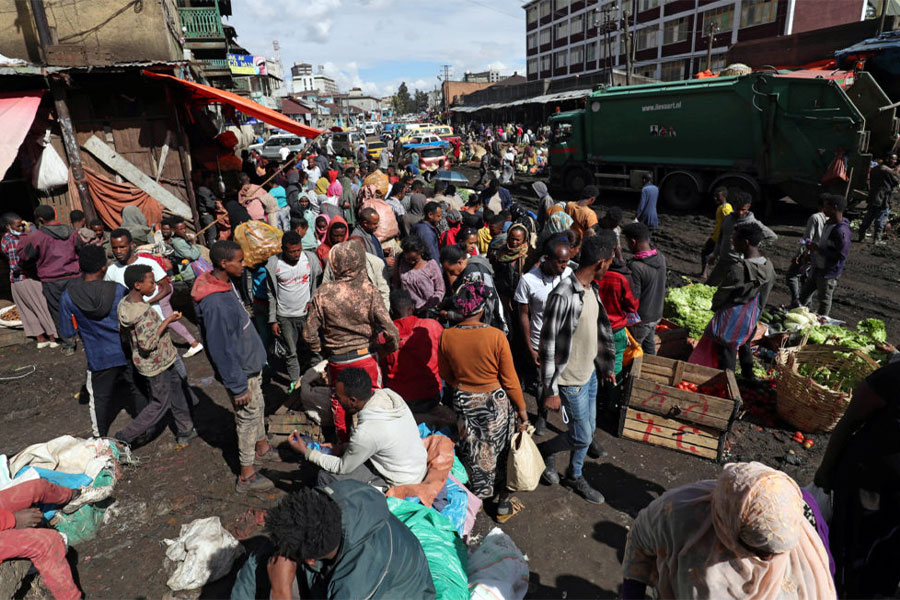
Commentaries | Feb 24,2024
Mar 30 , 2019
By Lee Jong-Wha
Protectionism and excessive social welfare policies undermine economic competitiveness. Human capital development is instead the way to go, writes Lee Jong-Wha, professor of economics and director of the Asiatic Research Institute at Korea University. This article was originally published on Project Syndicate.
Inequality has skyrocketed in recent decades, and those who have not shared in the fruits of economic growth and development are becoming increasingly frustrated. Some political leaders have responded to rising public discontent with massive social welfare programs or beggar-thy-neighbour protectionism. That is the wrong prescription.
Populists on the right and the left have led the charge in implementing such counterproductive policies. The former often embrace protectionism, and the latter advocate unproductive social welfare spending. Even if they provide short-term benefits to some groups, these policies will fail to bring about inclusive growth – and they may do serious harm to the economy in the long run.
The most prominent proponent of protectionism today is United States President Donald Trump, who has aggressively pursued his “America First” agenda since his inauguration in 2017. Trump blames free trade for job losses and real-wage depression in the United States’ manufacturing sector and argues that measures like higher import tariffs will bring back manufacturing jobs, raising many American workers’ wages and improving their welfare.
But most economists agree that protecting less productive industries and unskilled workers against global competition will not lead to long-term economic gains. Even in the short term, there is no evidence that Trump’s protectionist policies have had the intended effects.
The other favoured approach to reducing inequality – excessive redistributive policies – is similarly problematic. In South Korea, President Moon Jae-in’s administration has raised the minimum wage by 29pc over two years, while expanding social welfare spending. This was supposed to boost the wellbeing – and consumption – of low-wage workers and low-income households, thereby strengthening inclusivity, a key pillar of sustainable growth. But the change hit small businesses hard, and job creation remains weak. The country’s income distribution has worsened significantly.
Then there’s Venezuela. For two decades, left-wing populist governments – led by the late Hugo Chávez and now by his protégé, President Nicolás Maduro – have pursued excessive social-welfare policies, funded by large oil revenues. Yet because the government failed to diversify the economy, Venezuela was quickly consumed by a dire economic crisis when crude oil prices plummeted.
Over the last three years, Venezuela’s real GDP has contracted more than 15pc annually. Last year, the annual inflation rate exceeded 1.3 million percent, with prices doubling every 19 days. As food and other basic necessities became unaffordable, the average Venezuelan reportedly lost 11Kg. More than three million people, about a tenth of the population, have fled the country.
By weakening incentives to work and invest, protectionism and excessive social welfare policies undermine job creation, impede technological progress and drive down economic growth. In other words, far from boosting inclusive growth, these strategies discourage it.
A far more effective approach would emphasise human-capital development, achieved through greater investment in education and skills training. The World Bank, among other international organisations, recognises this, advocating human-capital investment – together with improved infrastructure, pro-competition regulatory reform, anti-corruption measures and adequate social security systems – as key components of any successful strategy to secure inclusive growth.
To remain competitive, an economy must pursue open trade policies, promote technological development and encourage higher-value production – all while building a workforce with the skills to match. That is precisely the strategy that enabled East Asian economies to create quality jobs, raise incomes and achieve strong “growth with equity.”
The first step is to expand access to quality education and vocational training across regions and social groups. Governments must provide financial assistance, including subsidised loans or scholarships to children from low-income households. Public support for vocational training must target low-skill and other disadvantaged workers, especially those in small firms or the informal sector.
Sustaining such policies will require considerable financial resources. That is why governments must not only place a high priority on education in their budgets but also attract additional resources from the private sector and the international community. Moreover, they must strengthen the efficiency and accountability of school systems and vocational training programs. Encouraging competition among institutions and strengthening monitoring and evaluation mechanisms would support the efficient use of resources.
In an environment of rapid technological change, education and vocational training must evolve to equip people with the skills, knowledge and attitudes they need to prosper now and in the future. In particular, lifelong learning opportunities should be improved and expanded, so that workers can continue to secure quality employment throughout their lives.
If governments are to fulfill their responsibility to support people’s ability to reach their potential, they must not succumb to the siren song of protectionism or excessive social welfare spending. Establishing an inclusive labour market is a prerequisite for inclusive growth. To achieve that goal, policymakers must make education and skills development for all workers – together with pro-growth policies to expand economic opportunities – a top priority.
PUBLISHED ON
Mar 30,2019 [ VOL
19 , NO
987]


Commentaries | Feb 24,2024

View From Arada | Jun 28,2025

Commentaries | Oct 18,2025

Radar | Jun 14,2020

Viewpoints | Apr 15,2023

Viewpoints | Jun 15,2024

Advertorials | Feb 12,2024

Radar | Nov 16,2024

Fortune News | Mar 23,2024

Fortune News | Apr 19,2025

Photo Gallery | 178448 Views | May 06,2019

Photo Gallery | 168646 Views | Apr 26,2019

Photo Gallery | 159452 Views | Oct 06,2021

My Opinion | 137076 Views | Aug 14,2021
Commentaries | Oct 25,2025

Dec 22 , 2024 . By TIZITA SHEWAFERAW
Charged with transforming colossal state-owned enterprises into modern and competitiv...

Aug 18 , 2024 . By AKSAH ITALO
Although predictable Yonas Zerihun's job in the ride-hailing service is not immune to...

Jul 28 , 2024 . By TIZITA SHEWAFERAW
Unhabitual, perhaps too many, Samuel Gebreyohannes, 38, used to occasionally enjoy a couple of beers at breakfast. However, he recently swit...

Jul 13 , 2024 . By AKSAH ITALO
Investors who rely on tractors, trucks, and field vehicles for commuting, transporting commodities, and f...

Oct 25 , 2025
The regulatory machinery is on overdrive. In only two years, no fewer than 35 new pro...

Oct 18 , 2025
The political establishment, notably the ruling party and its top brass, has become p...

Oct 11 , 2025
Ladislas Farago, a roving Associated Press (AP) correspondent, arrived in Ethiopia in...

Oct 4 , 2025
Eyob Tekalegn (PhD) had been in the Governor's chair for only weeks when, on Septembe...

Oct 25 , 2025 . By YITBAREK GETACHEW
Officials of the Addis Abeba's Education Bureau have embarked on an ambitious experim...

Oct 26 , 2025 . By YITBAREK GETACHEW
The federal government is making a landmark shift in its investment incentive regime...

Oct 29 , 2025 . By NAHOM AYELE
The National Bank of Ethiopia (NBE) is preparing to issue a directive that will funda...

Oct 26 , 2025 . By SURAFEL MULUGETA
A community of booksellers shadowing the Ethiopian National Theatre has been jolted b...